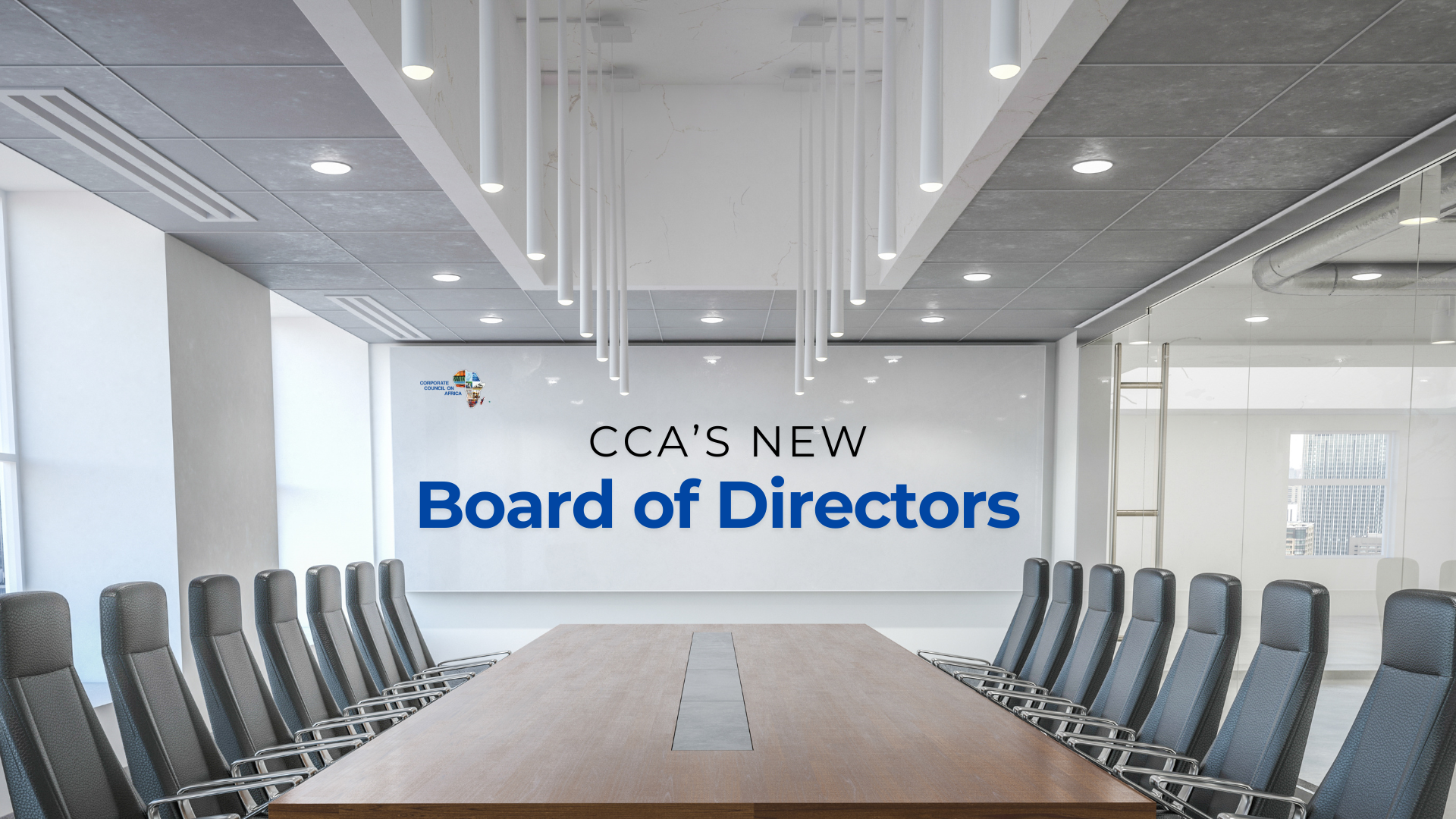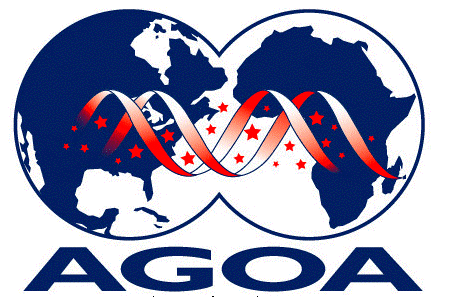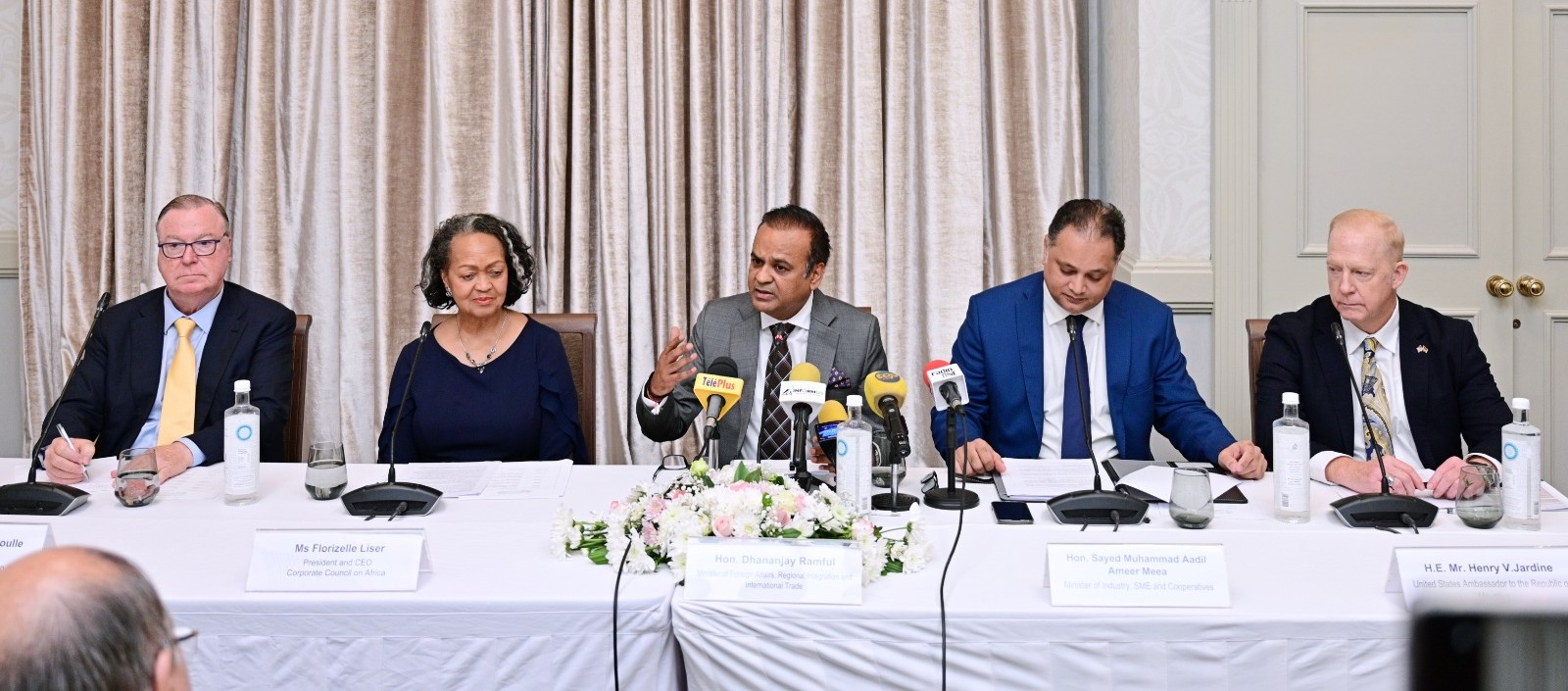Keynote Remarks Transcript: H.E. Moulay Hafid Elalamy, Ministry of Industry, Trade, Investment, and the Digital Economy, Kingdom of Morocco
Thank you, Mr. Ambassador,Dear Secretary Wilbur Ross, Ms. Florie Liser, President and CEO, Corporate Council on Africa, Ambassador McDonald, Your Royal Highness, Ladies and Gentlemen,Let me start by saying that the global economic situation was already showing signs of distress before the beginning of the pandemic.The pandemic had multiple effects on the global economy. Some of its most significant effects were seen in strategic sectors such as health.I will not dwell too much on the economic consequences of the pandemic as you are aware of its impacts on our economies. I would like to make a few comments on the data, which speaks for itself. When we look at the global GDP and the 2020 outlook, we anticipate a 5.2% global economic contraction, 7% for industrialized economies, 4.2% for the MENA region and 2.8% for the African continent. We observe a certain resiliency of African economies which is due in some part - if not in most - to the lack of industrialization across the continent.I would also like to talk to you about the interdependency of these strategic sectors. We all realized during this pandemic something we knew before that our economies were interdependent. However, we discovered that we were greatly weakened by our interdependency on drugs, masks, respiratory and other medical equipment that can save lives in cases like this pandemic.We noticed that most countries have seriously considered using this opportunity to redistribute the economic cards because these weaknesses proved too strong or sometimes unbearable. Some people call it relocation, others colocation or independence of strategic sectors.For sure, this economic shift will generate many opportunities but also some difficulties especially for countries that will lose some economic activities. However, we are convinced that Africa will be presented with a lot of opportunities.What can Africa offer in a global partnership?It is a fact that Africa is a granary of natural resources. It supplies iron ore, cobalt, phosphate, bauxite, and many more natural resources to the world. Some countries were better at taking advantage of those opportunities and investing in those sectors on the continent.However, we were less aware that our continent had a very skilled labor force composed of engineers and highly qualified technicians.Morocco’s experience during this pandemic is a good example of the impact of those local talents.During this pandemic, we were hit hard like any other country in the world and were even surprised. His Majesty, the King took some crucial decisions on the onset of the crisis to protect the health of the Moroccans. He also appealed to all the different economic players including those of the industrial sector, which falls under the purview of my Ministry, to contribute to the best of their ability to help the medical sector tackle the pandemic.Very quickly, Morocco which didn’t use to produce any masks, was now producing 17 million masks per day for a population of 36 million.We also discovered aeronautical engineers who came together to manufacture some of the highest performing respirators in the world. As you know the best respirator brand in the world is Dräger, a German brand, with an acceptable margin of error of 20%. The respirator manufactured by the Moroccan aeronautical engineers has a 3% margin of error.We also saw companies that used to import from China, surgical masks manufacturing machines, starting to produce these machines locally.The automotive and aeronautic sectors partnered to produce these types of equipment.We manufactured infrared thermometers and cameras in Morocco. Recently, we started producing the PCR test. We have a PCR test that is manufactured by Moroccan engineers. This PCR test is operational and being used in the Kingdom.We also discovered last week during a visit to Montpellier, France that the saliva test being used was manufactured in Tangier, in Morocco which I did not know.This should tell you that we have African, Moroccan, human resources with the capacity to do astonishing things.It is not well known but in Morocco, we manufacture cars, around 700,000 per year with 60% of integration rate. We also manufacture key aircraft parts including the engine hot section. As you are aware, an aircraft engine has a cold or hot section. The hot section is the most complex part of the industry. In Morocco, we have engineers who manufacture parts for the hot section.We also have a market that was built over the years because we decided very early to have an open economy market. Morocco has signed free trade agreements with 56 countries which makes it a platform with a large market.As far as competitiveness is concerned, our companies seek to be competitive which resulted in some of our industries been lost to China in the recent past. A few years ago, when I was the Chairman of the Moroccan CEO Forum, I witnessed the disappearance of chunks of our economy to China, for example, our textile industry which was an asset for the country and the region. We, unfortunately, lost a lot then.Fortunately, we are witnessing a strong return of competitiveness and of those activities in Morocco.For example, when you look at the automotive industry, we climbed the ladder step by step, and today, only China and India are more competitive than Morocco with India in the lead.Our plan is to continue improving to be at the same level of competitiveness as India in the next three years.As part of our analysis of the global automotive industry, we realized that the European Union, for example, to protect itself against this global exchange with products flooding its markets from Asia decided to implement a carbon tax. This tax is levied on the carbon content of fuels, generally in the transport and energy sector entering the European market.For this reason, many years ago, Morocco took preventive steps. The King of Morocco pushed early on to make renewable energy a reality in Morocco when no one really understood its importance. The mindset then was that green energy was for very wealthy rich countries. However, today, 40% of our energy consumption comes from green energy. We decided to integrate green energy into our industries to have decarbonized products.As you know we have a free trade agreement with the U.S. and the E.U. We would like to leverage our decarbonized industry to be at the same competitive level as India by 2023. We worked very closely on this aspect with partners like PSA Peugeot, to demonstrate our capacity to leapfrog to India’s level in addition to offering a decarbonized product which gives us an extra edge in terms of competitivity.The Kingdom of Morocco enjoys an exceptional relationship with the U.S. But we want to strengthen that partnership and make Morocco a complementary platform to the U.S. based on the points I mentioned earlier.What I mean by that is to position Morocco as a partner to the U.S. that is innovative and has a skilled labor force. I must admit that I was personally completely astonished to see our young engineers do some amazing things during the COVID-19 pandemic. So, in addition to our innovation and highly qualified human resources, our other assets are our market, competitivity, and strategy to decarbonize our industry.We often talk about love, but what is important is to demonstrate that love. In international economic relations what is key is to show the type of value-added one can bring.This is what I wanted to share with you on what Africa, in general, can bring in a global partnership and specifically what the Kingdom of Morocco, which I am more familiar with, can contribute positively as a partner.Thank you for listening and above all, thank you for your invitation!Regards!



